ava on Nostr: That is a very big topic. There are so many translations to choose from, it can be a ...
That is a very big topic. There are so many translations to choose from, it can be a daunting task to know where to begin!
More literal translations of Tao Te Ching tend to miss the concise beauty and contemplative flow of the original Chinese text, while more concise, poetic translations tend to stray from the original Chinese text.
In short, if you want a deeper understanding of the text, aside from or in addition to learning Chinese, owning multiple English translations is the way to go.
**Here are some English translations of Tao Te Ching that I recommend as a good starting point:**
- The translation I have been sharing this time around is from **Stephen Mitchell**. It is a beautifully meditative translation, but not always the most true to the original text. Though when liberties are taken, they are taken in the spirit of the Tao.
Tao Te Ching: A New English Version (Perennial Classics) https://a.co/d/fFBzwNQ
- **Stephen Addiss and Stanley Lombardo**, trans. Tao Te Ching. This is a wonderfully unadorned, simple, zen-like translation that has the right "feel" of the spoken original.
Tao Te Ching https://a.co/d/iRLQq5j
- The **D. C. Lau** (Penguin House) translation is considered one of the best (if not THE best) academic translations. Published in 1974, it is missing more recently discovered manuscripts, but if you are looking for a scholarly translation, then look no further.
Tao Te Ching https://a.co/d/6Cq55Aq
- Another translation I highly recommend is by **Derek Lin**. It is probably the most accurate as far as a clear understanding of the original Chinese for both scholarly and personal use.
Tao Te Ching: Annotated & Explained (SkyLight Illuminations) https://a.co/d/gP3msq0
https://dereklin.com/tao-te-ching/
I hope this short list serves you well as a good starting point on your journey into Tao.
In closing, I believe the foreword to the Addiss and Lombardo translation will help in understanding why I have recommended multiple translations, and not just one.
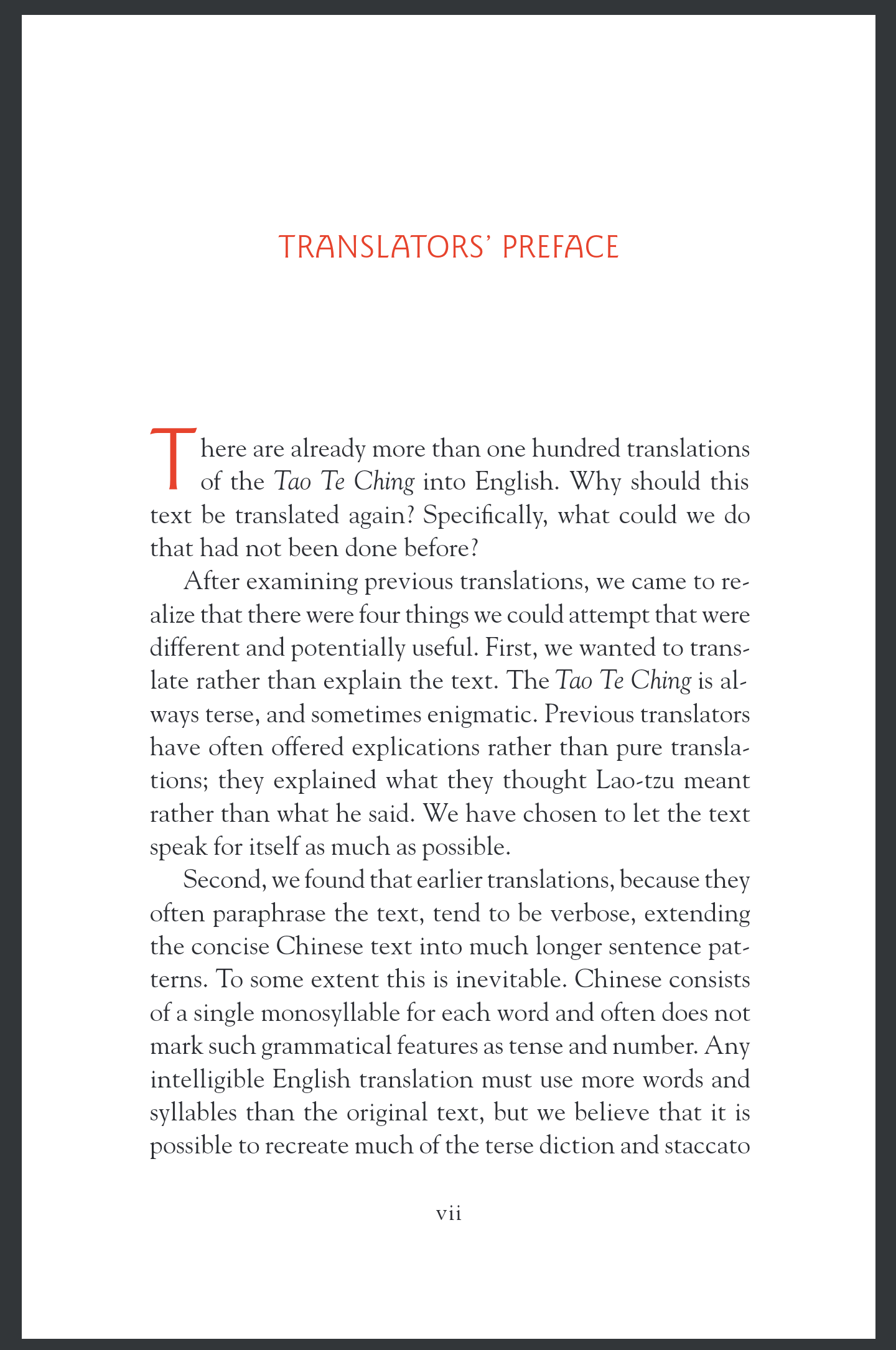
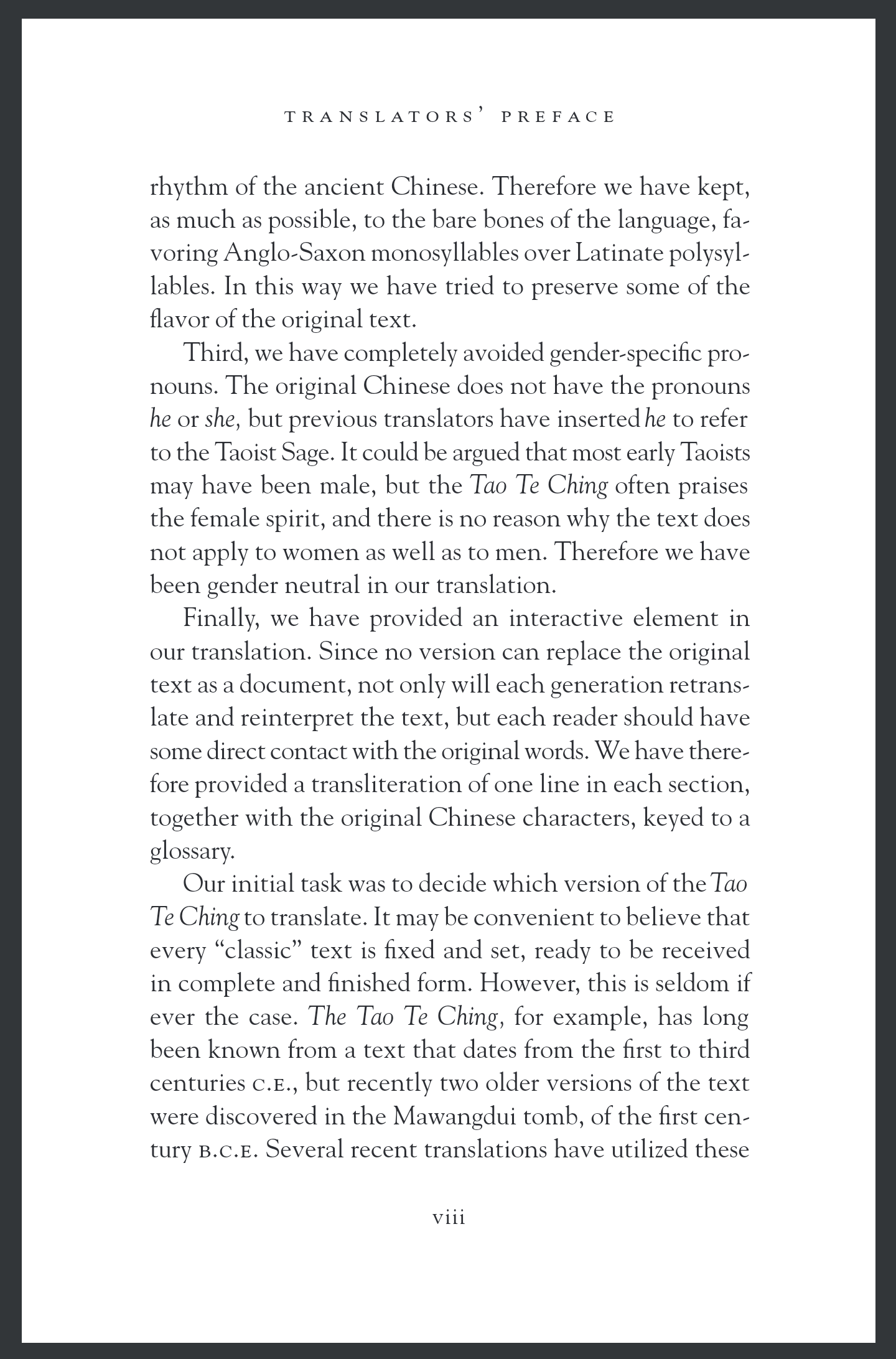
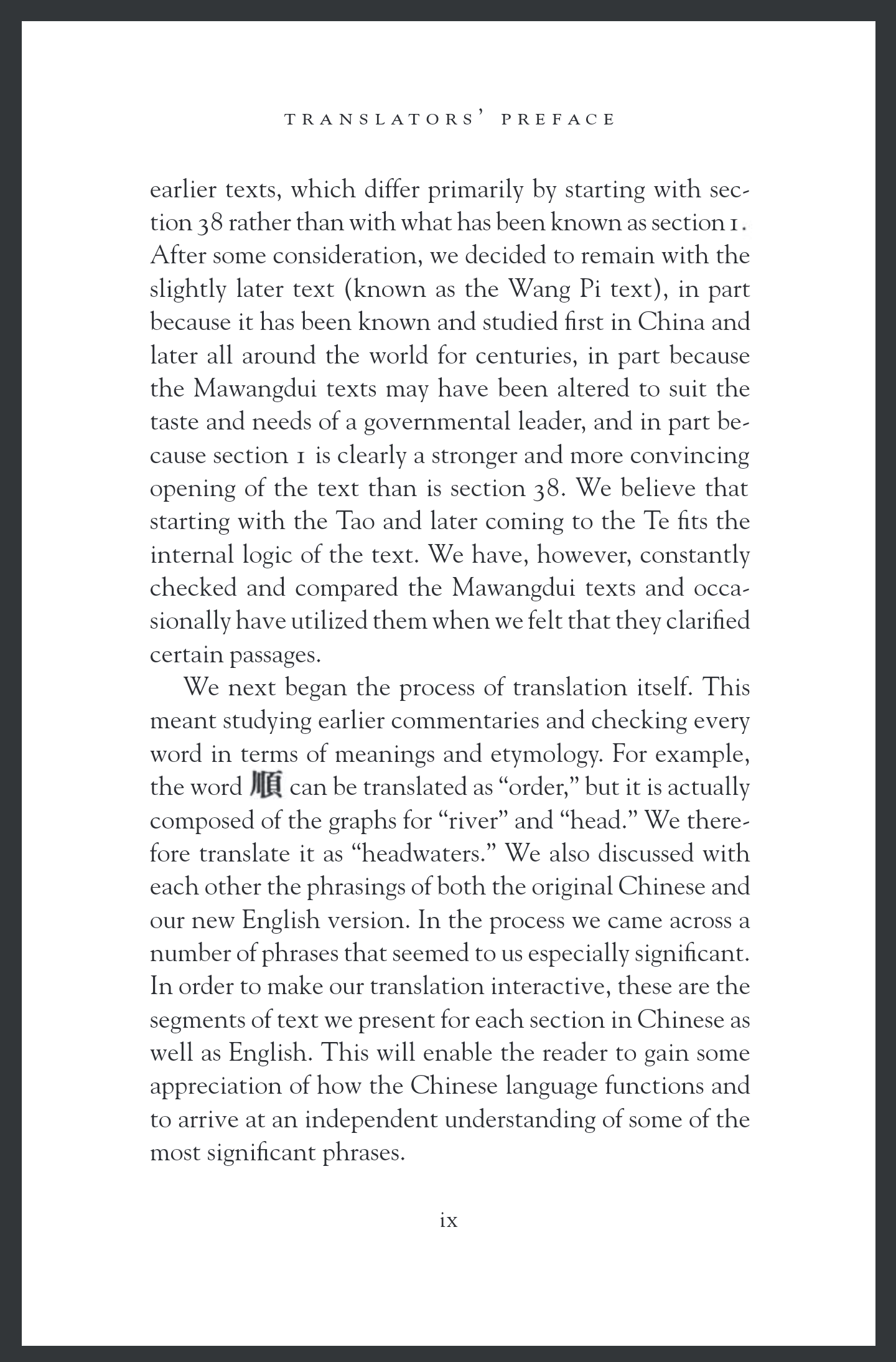
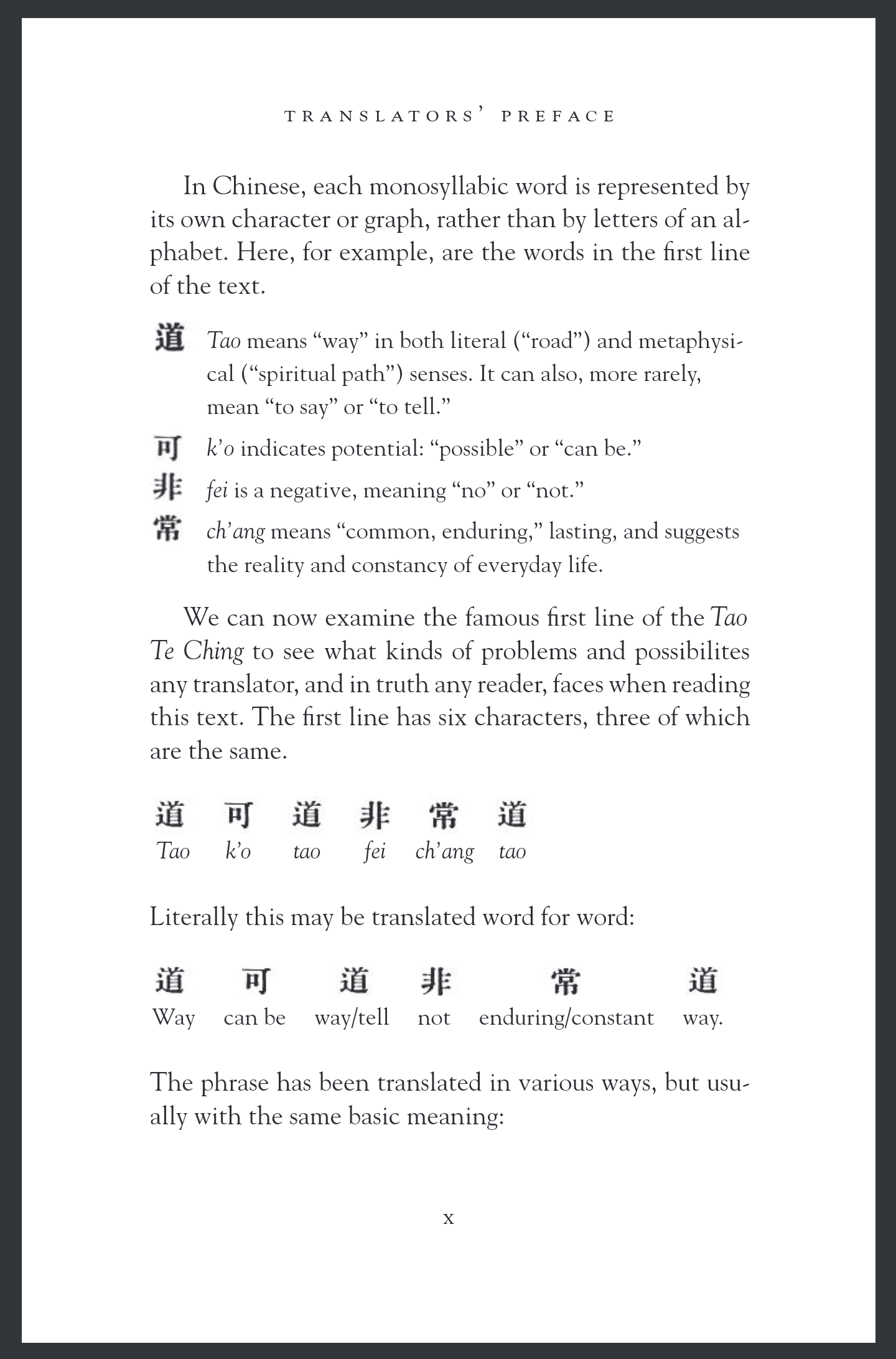
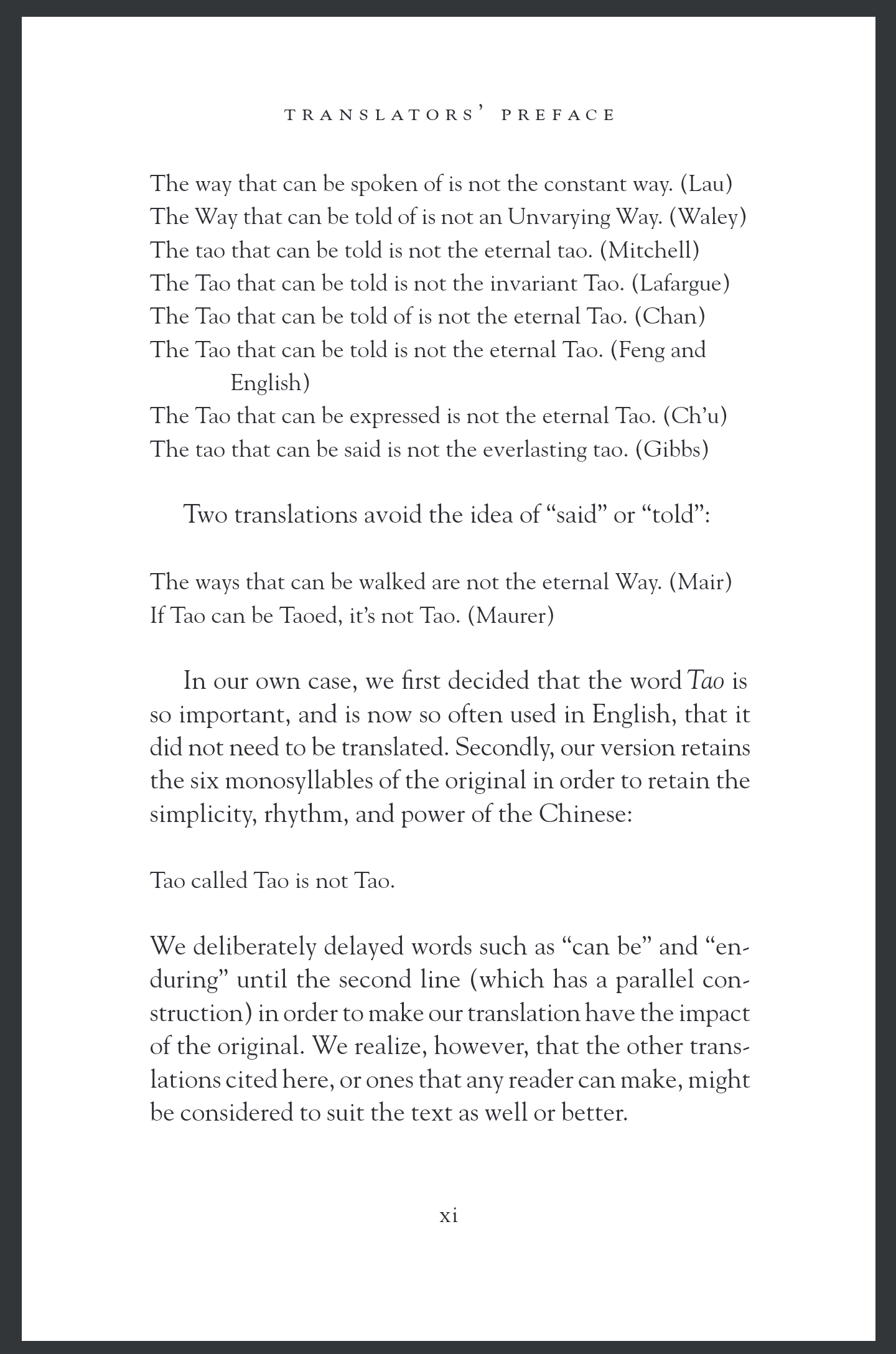
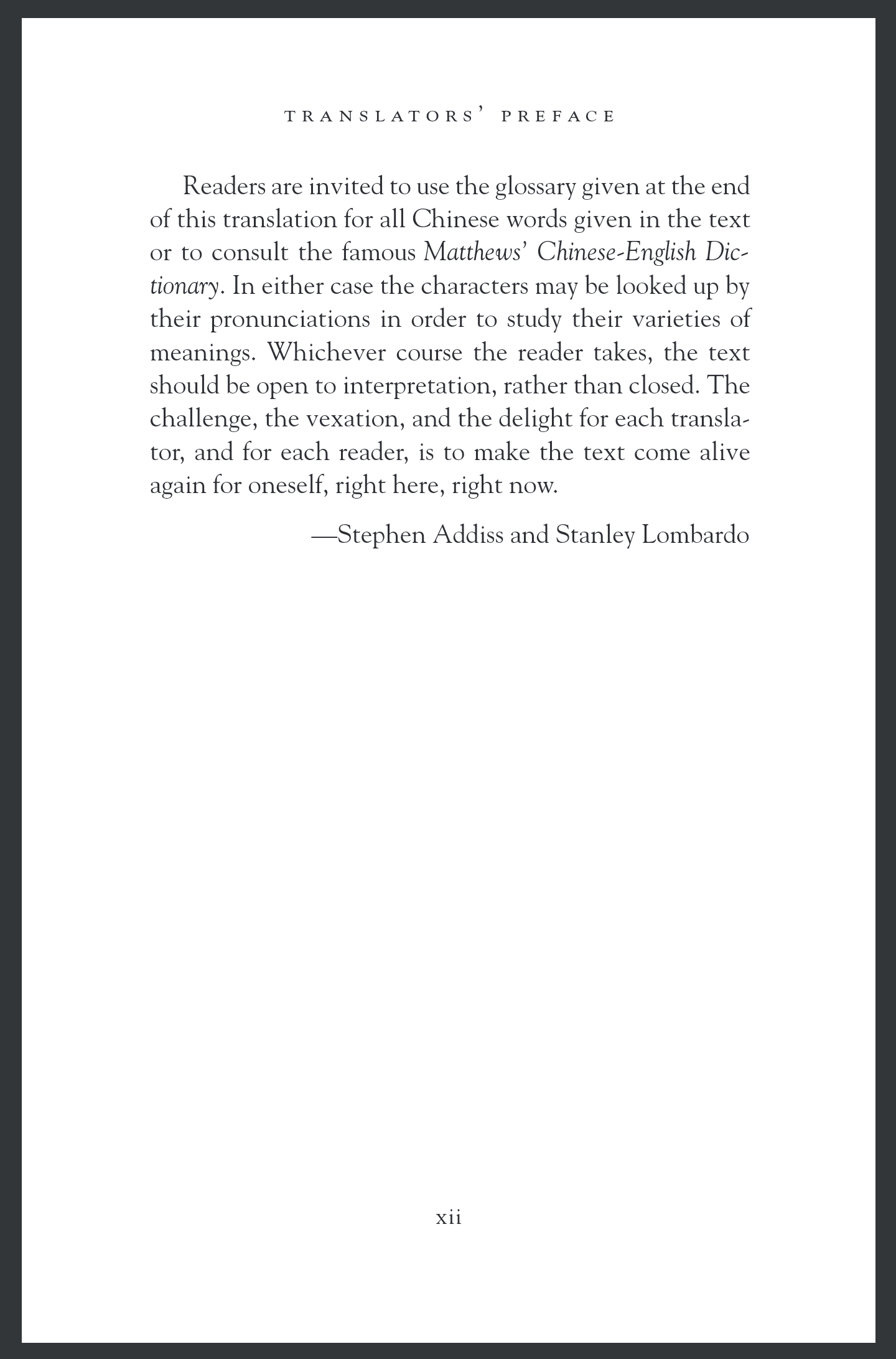
More literal translations of Tao Te Ching tend to miss the concise beauty and contemplative flow of the original Chinese text, while more concise, poetic translations tend to stray from the original Chinese text.
In short, if you want a deeper understanding of the text, aside from or in addition to learning Chinese, owning multiple English translations is the way to go.
**Here are some English translations of Tao Te Ching that I recommend as a good starting point:**
- The translation I have been sharing this time around is from **Stephen Mitchell**. It is a beautifully meditative translation, but not always the most true to the original text. Though when liberties are taken, they are taken in the spirit of the Tao.
Tao Te Ching: A New English Version (Perennial Classics) https://a.co/d/fFBzwNQ
- **Stephen Addiss and Stanley Lombardo**, trans. Tao Te Ching. This is a wonderfully unadorned, simple, zen-like translation that has the right "feel" of the spoken original.
Tao Te Ching https://a.co/d/iRLQq5j
- The **D. C. Lau** (Penguin House) translation is considered one of the best (if not THE best) academic translations. Published in 1974, it is missing more recently discovered manuscripts, but if you are looking for a scholarly translation, then look no further.
Tao Te Ching https://a.co/d/6Cq55Aq
- Another translation I highly recommend is by **Derek Lin**. It is probably the most accurate as far as a clear understanding of the original Chinese for both scholarly and personal use.
Tao Te Ching: Annotated & Explained (SkyLight Illuminations) https://a.co/d/gP3msq0
https://dereklin.com/tao-te-ching/
I hope this short list serves you well as a good starting point on your journey into Tao.
In closing, I believe the foreword to the Addiss and Lombardo translation will help in understanding why I have recommended multiple translations, and not just one.






